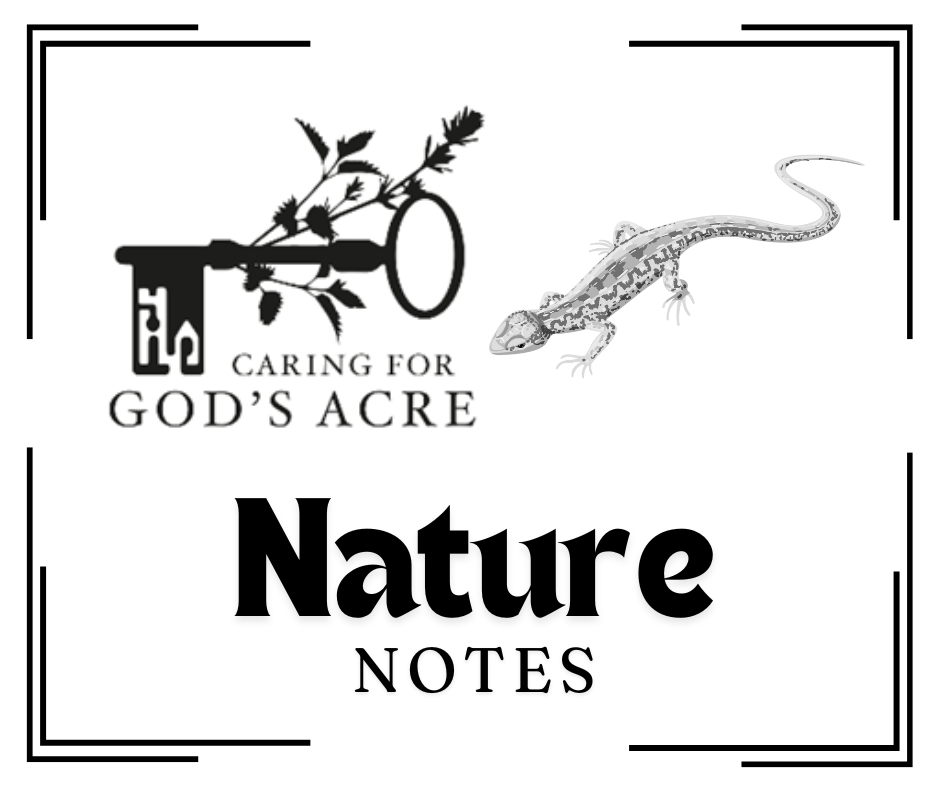Looking for Lizards
 April is one of the best times of year to search for reptiles such as lizards as they are getting active in the spring but need to bask a lot to warm up and so can be quite easy to spot. Reptiles are poikilothermic, meaning that their internal temperature varies, depending on the weather, as opposed to homeothermic animals like us, who can maintain a nearly constant internal temperature. These characteristics used to be called cold or warm blooded. In the spring reptiles need to be warmed in order to be active, but later in the year, when the weather is hotter, they do not need to come out into the open where predators might find them and may actually need to shelter to cool down.
April is one of the best times of year to search for reptiles such as lizards as they are getting active in the spring but need to bask a lot to warm up and so can be quite easy to spot. Reptiles are poikilothermic, meaning that their internal temperature varies, depending on the weather, as opposed to homeothermic animals like us, who can maintain a nearly constant internal temperature. These characteristics used to be called cold or warm blooded. In the spring reptiles need to be warmed in order to be active, but later in the year, when the weather is hotter, they do not need to come out into the open where predators might find them and may actually need to shelter to cool down.
Churchyards can be brilliant for all reptiles because they contain a mixture of warm places to bask such as stones and short grass, which are usually close to places where they can shelter such as gaps and cracks within stone walls, long and tussocky grass, uneven ground with holes and also larger gaps within the joints of monuments such as chest tombs. Churchyards are also rich in invertebrate food, in part due to the absence of chemicals such as pesticides.
When searching for lizards look several metres ahead of where you are walking, going slowly and quietly. Reptiles can pick up vibrations from sudden movement and are aware of shadows falling on them. Search on flat stones and south-facing banks of short grass, close to good hiding places. First light is the best time, when they are cold and need the warmth of the sun. Lift flat stones and pieces of wood to search for slowworms (a lizard without legs), who often ‘bask’ underneath something that will transmit heat. Roofing felt is a favourite and you can put half metre squares of this out if you want to search for slowworms. Give them a few weeks to discover the felt squares then peep under them at the start and end of the day. Please let us know if you spot any of these fascinating reptiles in your churchyard.
Andrea Gilpin
andrea@cfga.org.uk
www.caringforgodsacre.org.uk
